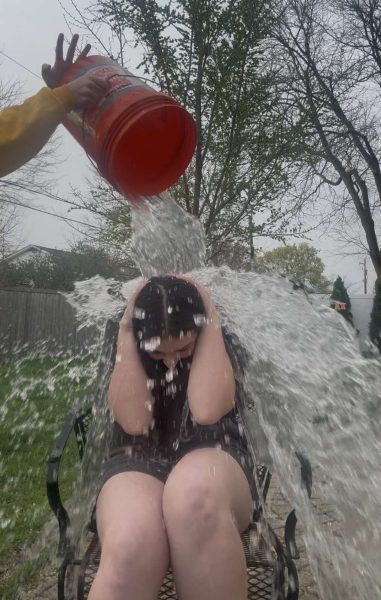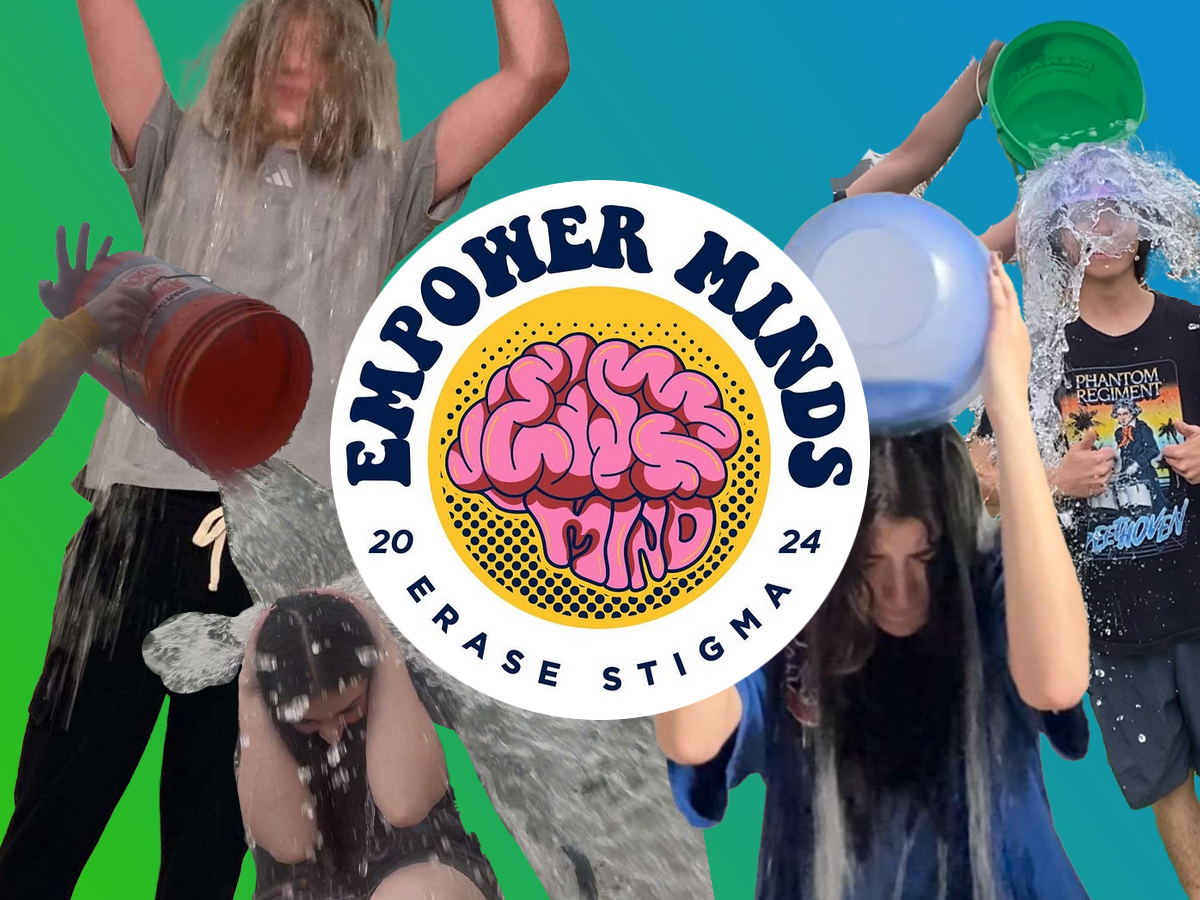Hi, I’m me! Thank you to Friend 1 for nominating me for the USC Speak Your Mind/Ice Bucket Challenge. I’d like to nominate Friend 2, Friend 3, and Friend 4. You have 24 hours!
At the end of March, University of South Carolina’s Mental Illness Needs Discussion club (MIND club) posed a very chilly challenge to its followers on Instagram. #speakyourMIND asked participants to record themselves getting a bucket of ice water dumped on them and post it to their social media challenging 2-5 friends to do the same.
Lockport students have been all over this challenge, exploding social media with countless videos featuring students of all grades and clubs taking on the frigid bucket and challenging fellow students and friends to do the same.
Sophomore Laura Lee was one such participant in this challenge: “My friends Claudia and Juliana nominated me for the USC Ice Bucket challenge, and basically I just got water from my rain bucket, put some ice in it, and then my brother dunked it on my head.”

The whole initiative of this challenge, according to MIND founder Wade Jefferson, is to raise awareness around mental health stigmas and to promote daily mindfulness, especially in the lives of students.
So far, the campaign has been extremely successful, raising over $125,000 for Active Minds, a nonprofit organization focused on youth mental health. Students taking part are not only creating a fun competition with their peers, but they are also breaking stigmas around mental health and suicide. What better way to thaw out a tough conversation than to dump ice cold water on each other?
“I’m seeing it everywhere. That’s all I’ve seen on my phone for this week generally,” junior Jacquelyn Diaz, who participated in the challenge, noticed. Laura Lee said she knew “people from colleges, middle schools, and all over doing it.”

Keen readers will recall 2014’s ALS Ice Bucket Challenge, which was so successful in raising money that it helped drive the development of an ALS drug.
These types of challenges aren’t 100% successful, however. While the ALS Ice Bucket Challenge did help fund the development of an ALS drug, said drug was eventually pulled from the market after a large study proved “it didn’t help patients with the deadly neurological condition.”
The USC Ice Bucket Challenge may encounter similar pitfalls, with systemic mental health issues being a notoriously complex and difficult problem to tackle. But it’s clear these challenges are made with good intentions, and simply acknowledging that an issue exists is a step in the right direction.
But is awareness the true reason for the success of this trend?
These videos are reminiscent of the older, simpler age of the ALS Ice Bucket Challenge – one where hopping on a viral trend meant doing something earnestly silly or challenging, not using irony-laden slang or posting videos so embedded within internet culture that they appear nonsensical to outsiders.
“I’m thinking that it’s just a silly thing to spread awareness and stuff for mental health,” junior Gavin Segovich, another participant, told me.

It’s a reprieve from the stressful political moment we find ourselves in, where policies can change on a dime, checks and balances seem to be thrown out the window, and the stability of American democracy becomes more uncertain by the day.
“Maybe people are struggling this year more often, especially with everything going on in life – a lot of people are really scared about society at the moment,” Jacquelyn Diaz commented.
Gavin Segovich reflected on how stressful this current moment can be for some individuals: “We see the news stories about what’s happening in our country, and to some people they don’t care about it. To other people, this could maybe ruin their lives effectively, depending on their identity and where they’re from or who they’re related to.”
While the 2010’s were far from a perfect, ideal utopia, it’s no wonder that Gen Z is yearning for the more innocent and blissfully ignorant days of their youth, where we only concerned ourselves with what was on Disney Channel and the intricate literary value of clean vine compilations.
“Like I said, we’re still teenagers in high school, but it’s something that’s just kind of always going on in the background and in the back if our minds, where we’re seeing all these ridiculous, stupid and sometimes horrible things happening in our society and government, and there’s not a whole lot we can do about it.”
Some have utilized their frustration and stress stemming from this lack of control to mobilize, but many also find themselves burnt out and tired of having to constantly think about these existential issues . While we are living in a critical political moment that calls for necessary action, it also doesn’t hurt to remind ourselves that we are human as well – there is only so much stress we can bear before we eventually crack.
This is perhaps the greatest unsung victory of this campaign – reminding people that their feelings are valid and being stressed or anxious is normal, especially during these tumultuous times.
We should be fighting for our democracy and future, yes, but devoting some time to a grounded and fun activity certainly does no harm, even if we catch a cold afterwards.







